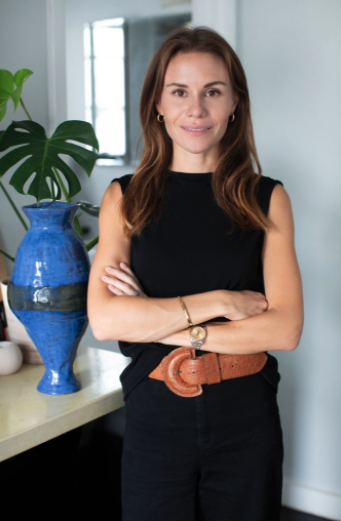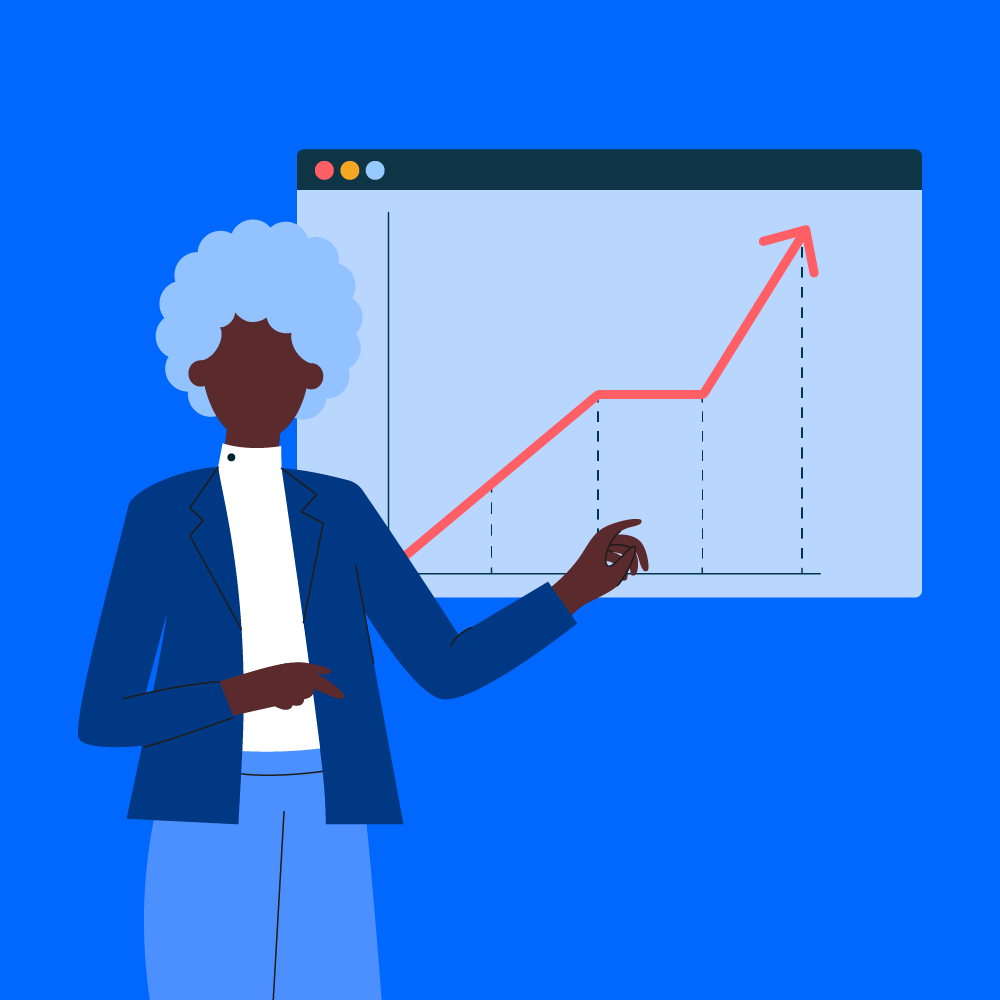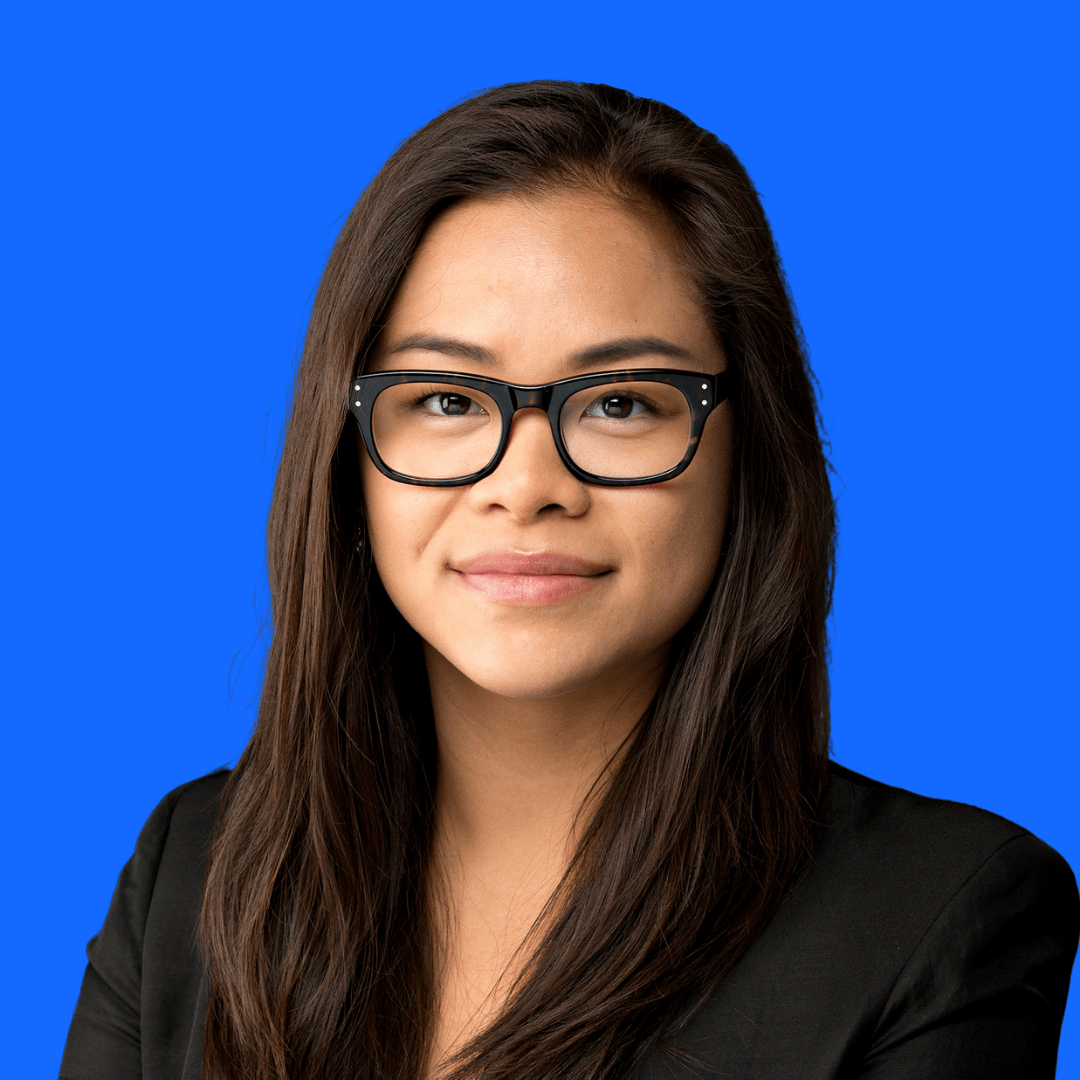The Crunchbase “Female Founder Series” is comprised of stories, Q&As and thought-leadership pieces from glass-ceiling-smashers who overcame the odds and are now leading successful companies.
This article is part of the Crunchbase Community Contributor Series. The author is an expert in their field and a Crunchbase user. We are honored to feature and promote their contribution on the Crunchbase blog.
Please note that the author is not employed by Crunchbase and the opinions expressed in this article do not necessarily reflect official views or opinions of Crunchbase, Inc.
Yasmine Morrison, an investment associate at Florida Funders, is providing founders with the capital needed to grow their companies—particularly startups in the future of work, B2B SaaS enterprise and fintech spaces.
After a career with organizations such as the World Trade Center, Morrison realized she could have a much larger impact by working directly with entrepreneurs. Following her eclectic career as a founder and consultant, she transitioned into venture capital to combine her passion for entrepreneurship with her love of learning. Now, Morrison is able to tap into her journey as a former entrepreneur to make an even larger impact on founders and companies raising funds of their own.
In this Q&A, Morrison shares her career journey, why she chose to join Florida Funders and the advice she has for founders pitching to funds.


Q: Tell us a bit about Florida Funders. What’s Florida Funders’ core thesis and what types of companies do you invest in?
Florida Funders is a hybrid VC fund and angel investor network that finds, funds and builds the next generation of great tech companies. We are coming off a very strong 2020 with two exits and 24 new investments. We were also once again named the most active VC in the Southeast. Florida Funders invests in B2B SaaS enterprise, fintech, future of work, edtech, and digital health startups at the seed to Series A stages. We like to invest in founders based out of Florida, but we invest in strong founders outside of Florida as well.
Q: What made you join Florida Funders?
Florida Funders’ investment thesis resonates with me as I am passionate about startups in the future of work, B2B enterprise SaaS, and fintech spaces. It was also important for me to join a VC that is very active. Florida Funders being the most active VC in the Southeast U.S. was a big pull for me. Moreover, I enjoy investing at the earlier stages.
Lastly, the Florida startup scene is booming right now. With the recent influx of founders, startups and VCs coming to Florida, I believe we will see some strong startups coming out of cities like Miami in the next few years. Personally, I find new beginnings really exciting, and I don’t think anyone can deny the energy around the startup ecosystem in Miami right now.
Q: What does the team structure of Florida Funders look like?
The Florida Funders team consists of both a venture team and an angel investor network that spans over 1,500 investors. Our venture team is led by four partners and comprises the investment committee, investor relations, operations, marketing, platform and the deal team, where I am. The majority of the deal team are women, and moreover, 40 percent of the full-time employees at Florida Funders are women.
Our company is also unique because of the technology platform we’ve built to power our angel investor network. Investors in the LLC who own the technology behind our platform include Sheryl Hunter of Hunter Business Law, Mary Pipino of Pipino Insurance, and Rachel Sapoznik of Sapoznik Insurance.
Q: Tell us about your career journey: At what point in your career did you decide to work as an investor and why?
I started my career working with organizations like the World Trade Center, but quickly realized I could make a bigger impact on the world working in the entrepreneurial ecosystem. I started a marketplace comparable to Etsy that eventually led me to open a few stores in London and a small exit. From there, I founded a marketplace app. That experience showed me how much of a roller coaster entrepreneurship can be. Almost anything that could go wrong in a startup went wrong with that company.
Following that adventure, I spent several years consulting large corporations and startups primarily in the tech space, such as Amazon. I also founded a future of work media and freelance platform. I then decided to study at Harvard for my graduate degree and move into venture capital. What ultimately led me to pursue a career as an investor was a combination of my passion for entrepreneurship, interest in tech and love of learning.
Q: What past experiences have contributed to honing your skillset as an investor?
As a former entrepreneur, I have been through the ups and downs of the startup journey, which I think makes it easier to relate to founders. I am also very curious and often find myself doing research on “the next big thing.” I enjoy looking into the future and trying to predict what’s next. I would also describe myself as a Jackie-of-all-trades, which gives me the ability to look at startups from many different angles and also support startups with various tasks.
Q: What is the biggest challenge you’ve faced as an investor? If you could start all over again, would you do anything differently?
Having worked as VC for almost a year, I think one of the biggest challenges is the steep learning curve that comes with working in VC. You often don’t know if you have made “good investments” until many years down the road.
Something I wish I could do over is go into venture capital earlier. As an entrepreneur, you have to be laser-focused and obsessed with your business. As an investor, you have the ability to dive into different industries and companies, which really stimulates my curiosity.
Q: What’s the biggest misunderstanding that aspiring investors have about the investment industry?
One of the biggest misunderstandings around breaking into VC is that you have to come from an investment banking background. Especially in early-stage investment, we are seeing a lot more people entering from all different types of industries. Although an understanding of venture finance is a must, you don’t need to be a financial wizard with five years of Wall Street experience to be successful. On the contrary, a lot of founders have told me that they actually prefer to work with investors who come from a technical or entrepreneurial background.
Q: What do you look for when considering a company or idea for investment? How much does a founder’s personality weigh into an investment opportunity?
Team, market size and product. I think founders are the most important piece of the puzzle when investing. If the founders aren’t “good,” they aren’t going to be successful. What I mean by a good founder is someone who has deep expertise in the industry, a strong track record, and is probably a “little bit crazy.” I think anyone crazy enough to start a business will be someone who thinks outside the box, takes risks and can create a strong vision for their team. The market size has to be big enough and the product should solve an unmet need for the customers.
Q: How much of your process is due diligence vs. gut feelings vs. validation from your colleagues or network?
It’s a combination of all them. Initially, when you look at a deal, many things come into play. At first glance, your gut feeling is an important factor. However, validation from your colleagues and network is also critical. What’s great about our team is that we all tend to look at deals from different perspectives, which is really helpful when evaluating a startup. Then there is the due diligence part, which will tell you if your initial review was right or wrong. Another aspect of our process at Florida Funders is to speak with subject-matter experts to gain a deeper insight into the space.
Q: What types of companies are most exciting to you?
Having studied the future of workspace for more than six years, and with all the recent developments in the area, I enjoy meeting founders focused on solving problems around hybrid workforce, productivity tools and the future of jobs. Developer tools is another space that I believe will become even more critical moving forward. Another area I find exciting is startups innovating around the metaverse.
Q: How much time and energy do you devote to supporting portfolio companies once you’ve invested?
Whenever we’re heavily invested in a company, either as a lead investor or co-lead, we like to take a board seat and have an operating partner involved. From there, we usually bring the companies in to meet with our entire team yearly for what we call our “deep-dives.” There are one- to two-day meetings where we review every element of a founder’s business, bring in experts around marketing, finances, sales, tech and operations, and provide as much strategic input as we can to get them growing and scaling even faster.
Beyond that, we’re constantly looking to add value to our companies. One of the great things about Florida Funders is that we’re mostly former founders and we have a very diverse skillset and network—from taxes, accounting, marketing, sales, engineering and beyond. We try to bring all that to our founders whenever possible.
Q: What is your procedure when you’ve identified a company to invest in? What is your procedure when you’ve decided you aren’t going to invest in a company?
A: We partially fund most of our investments from our venture fund and from our angel network. Once the investment committee has decided to fund a deal, we then prepare them to “market” to the angel network. This involves helping them refine their pitch for a broader audience and then sharing who they are with our network over a two- to four-week period.
If we are passing at an early stage of our process, we email the founder with feedback and resources that could be helpful. If they are at a later stage in the process, we give them a phone call with more in-depth feedback. We try to stay close with founders we pass on by hosting events and being as helpful as we can.
Q: What advice do you have for others looking to join an investment firm?
Start today. If you have the ability to angel invest, put small check sizes into startups and start building a track record as an investor. Write and/or tweet about topics you find interesting and build thought leadership in a specific niche. Support and help founders; you’ll not only learn a ton, but you’ll also grow your founder network, which in my opinion is more valuable than your VC network.
Q: How important do you view personal branding as an investor? What have you seen work particularly well in that regard?
I think your personal brand in VC is very important, but there is a lot of VC content out there. So make sure you produce well-written, in-depth content rather than content for the sake of it. If you don’t have much of a presence on Twitter, start using it—the networking is really good and you can make some great connections with VCs, founders and journalists.
Q: What can be done to allocate more funding to female founders and to increase the number of female investors?
I could write a book on this topic. In short, there is a lot of work that needs to be done, but things are slowly going in the right direction. We are seeing an increase in female investors and investments into female founders, but the limited partner landscape desperately needs to change as the number of female LPs is shockingly low. I would also like to see a push toward more initiatives like Lolita Taub’s Startup-Investor Matching Tool, The GP-LP Matching Tool, and the VC University at UC Berkeley Law scholarship.
Q: Which books, podcasts, educational programs, or other resources have been most helpful to you?
Two classics and must-read VC books: “Secrets of Sand Hill Road” by Scott Kupor and “Venture Deals” by Brad Feld and Jason Mendelson. For podcasts, I like Acquired FM and The Twenty Minute VC by Harry Stebbings.
Another tip is to reach out to investors and ask for a short 15-minute call. In the early days as an investor, I reached out and spoke to more than 50 different venture capitalists. That’s a lot of calls, but I learned more than any book or podcast can teach you and I made all those new connections, too.
Q: What advice would you give to a company or founder wanting to pitch you?
- Do your homework and be strategic about the investors you approach. As an investor we get to choose from a lot of great deals. Why wouldn’t you do the same as a founder by choosing the best investor for your startup?
- Always try to get warm intros to investors. I know it’s not always that easy, but that’s why networking matters so much.
- Tailor your pitch to the investor. For example, if you are pitching a future of work startup to someone with deep expertise in the space, you should probably spend less time on describing the overall market and focus more on your traction.
- Stay in touch. If you didn’t make it through this time, always ask if you can stay in touch and make sure to send out investor updates. This way, you can stay top of mind.
Yasmine Morrison is a member of Dreamers & Doers, a private collective that amplifies extraordinary entrepreneurial women through thought leadership opportunities, authentic connection, and high-impact resources. Learn more about Dreamers & Doers and subscribe to their monthly The Digest for top entrepreneurial and career resources.





